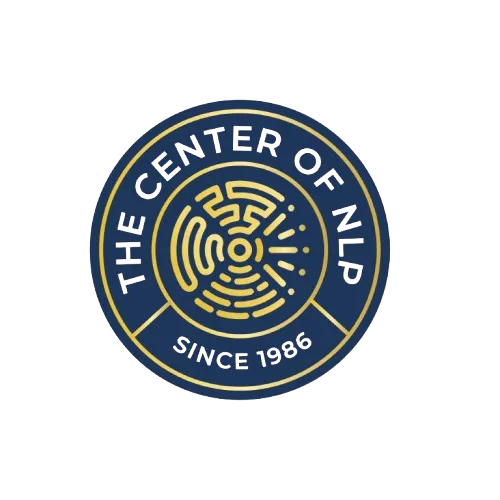
Strategic NLP Teaching to Learn Neuro-Linguistic Processing
Strategic NLP Teaching: Unlocking Advanced NLP Training Potential
Natural Language Processing (NLP) has evolved from a niche field into a transformative force across various industries. Whether it's chatbots, sentiment analysis, language translation, or text summarization, NLP is at the forefront of these developments. To harness the full potential of NLP, it is essential to understand the concept of strategic NLP teaching, which can significantly boost your advanced NLP training. In this blog, we'll delve into the importance of strategic NLP teaching, its role in advanced NLP training, and how it can propel you to new heights in this exciting field.
What is NLP, and Why Does it Matter?
Before we dive into the strategic aspects of NLP teaching, let's begin with a brief overview of NLP and its significance.
NLP is a subfield of artificial intelligence that focuses on the interaction between humans and computers using natural language. It encompasses various tasks like text classification, sentiment analysis, machine translation, and question-answering systems. The ultimate goal of NLP is to enable computers to understand, interpret, and generate human language in a valuable way.
The applications of NLP are vast and continue to grow. From virtual assistants like Siri and Alexa to customer service chatbots, from medical record analysis to content generation, NLP plays a pivotal role. Its ability to process and understand vast amounts of textual data has made it indispensable in today's data-driven world.
The Need for Advanced NLP Training
As NLP technology advances, the demand for individuals skilled in advanced NLP techniques is on the rise. The ability to extract valuable insights from unstructured text data or develop sophisticated language models is highly sought after in various industries. Here are a few key reasons why advanced NLP training is essential:
Competitive Advantage: With more organizations embracing NLP, staying ahead in this competitive landscape requires advanced NLP expertise. Businesses are constantly seeking ways to leverage NLP for market insights and operational efficiency.
Innovation: Advanced NLP techniques are crucial for driving innovation. Creating more accurate language models, enhancing text summarization algorithms, and improving language understanding are all dependent on advanced NLP training.
Solving Complex Problems: NLP is increasingly being used to solve complex problems, such as medical diagnosis, legal document analysis, and social sentiment analysis. Advanced training equips individuals with the skills needed to tackle these challenges effectively.
Career Opportunities: For professionals in the field of NLP, advanced training can open up doors to more lucrative career opportunities. It can also lead to roles in research and development.
The Role of Strategic NLP Teaching
Strategic NLP teaching involves an approach to learning and teaching NLP that goes beyond traditional methods. It emphasizes the importance of structured, focused, and goal-oriented learning to maximize the benefits of NLP training. Here are the key aspects of strategic NLP teaching:
1. Goal-Driven Learning
One of the core principles of strategic NLP teaching is setting clear, achievable goals. Instead of approaching NLP as a vast and intimidating field, learners break it down into specific objectives. For instance, a goal might be to build a sentiment analysis model for social media data. By working towards concrete objectives, learners can measure their progress and stay motivated.
2. Comprehensive Understanding
While goal-driven learning is essential, it's equally important to have a comprehensive understanding of NLP. This means learning not only how to implement NLP algorithms but also understanding the underlying theory, linguistic principles, and ethical considerations. This holistic approach ensures that advanced NLP practitioners can adapt to new challenges and stay innovative.
3. Practical Application
Strategic NLP teaching emphasizes hands-on practice. Learning by doing is crucial in NLP because it helps reinforce theoretical knowledge. This practical application can take the form of real-world projects, coding exercises, or research assignments. By applying what they've learned, students gain a deeper understanding of NLP concepts.
4. Continuous Learning
The field of NLP is dynamic and ever-evolving. Strategic NLP teaching encourages a mindset of continuous learning. This means staying updated with the latest advancements, attending conferences, and engaging with the NLP community. Advanced NLP practitioners are those who are committed to lifelong learning.
5. Mentorship and Collaboration
Mentorship and collaboration play a significant role in strategic NLP teaching. Learning from experienced professionals and working on projects in a collaborative environment can accelerate one's growth in the field. Mentorship offers guidance, insights, and a valuable network of contacts.
6. Ethical Considerations
As NLP becomes more powerful, it's essential to emphasize ethical considerations. Strategic NLP teaching incorporates discussions on data privacy, bias in AI, and the responsible use of NLP technology. This ensures that advanced NLP practitioners are not only skilled but also responsible professionals.
Advanced NLP Techniques
To excel in advanced NLP training, one must be familiar with a variety of techniques and tools. Here are some key areas that advanced NLP training should cover:
1. Transformer Models
Transformer models, like BERT and GPT-3, have revolutionized NLP. Advanced training should delve into the workings of these models and how to fine-tune them for specific tasks.
2. Sequence-to-Sequence Models
Understanding sequence-to-sequence models is crucial for tasks like machine translation, text summarization, and question-answering systems.
3. Named Entity Recognition
Advanced practitioners should be adept at identifying and extracting named entities from text data, which is vital for various applications, including information extraction and content recommendation.
4. Sentiment Analysis
In the age of social media and customer reviews, sentiment analysis is a critical NLP skill. Advanced training should encompass the nuances of sentiment analysis, including aspects like irony and sarcasm.
5. Language Generation
Creating content and text generation are areas that advanced NLP training should explore, enabling learners to build creative and functional language models.
6. Transfer Learning
Transfer learning techniques allow NLP practitioners to apply knowledge from one domain to another. Understanding how to transfer learning from one NLP task to another is a valuable skill.
The Benefits of Strategic NLP Teaching in Advanced Training
Strategic NLP teaching doesn't just enhance learning; it also brings several advantages to advanced NLP training:
1. Faster Progress
With clear goals and a structured approach, learners can make faster progress in their advanced NLP training. This not only boosts confidence but also accelerates their journey to becoming experts in the field.
2. Improved Problem-Solving
By fostering a comprehensive understanding of NLP, strategic teaching equips learners with the ability to tackle complex problems more effectively. This skill is highly valuable in a professional setting.
3. Career Advancement
Strategic NLP teaching can open doors to more advanced job opportunities. Whether it's research roles, leadership positions, or consulting, advanced NLP practitioners are in high demand.
4. Innovation
With practical application and continuous learning as part of the teaching methodology, learners are better positioned to drive innovation in the field. This can lead to breakthroughs in NLP technology and applications.
5. Ethical Considerations
Emphasizing ethical considerations ensures that advanced NLP practitioners are not only technically proficient but also responsible in their use of NLP technology. This is essential in an era of growing concerns about AI ethics.
Challenges in Advanced NLP Training
While strategic NLP teaching can significantly benefit advanced training, there are challenges that learners may encounter. Here are some of the common hurdles:
1. Technical Complexity
Advanced NLP techniques can be technically complex. Learners may need to have a strong foundation in programming, mathematics, and machine learning to excel.
2. Data Availability
Access to high-quality, labeled data is essential for advanced NLP training. Obtaining and managing such data can be challenging.
3. Keeping Up with Advancements
NLP is a rapidly evolving field. Staying updated with the latest research and developments can be time-consuming.
4. Ethical Concerns
Navigating the ethical challenges of NLP, such as bias in algorithms and privacy concerns, can be complex. Learners need to be aware of these issues and take them into account in their work.
Conclusion
Strategic NLP teaching is the key to unlocking the full potential of advanced NLP training. It provides a structured approach to learning, fosters a comprehensive understanding of the field, emphasizes practical application, and encourages continuous learning and ethical considerations. By following this strategic approach, learners can excel in advanced NLP techniques, accelerate their progress, and become valuable contributors to the ever-evolving field of Natural Language Processing. With the right mindset and guidance, you can embark on a rewarding journey in the world of NLP, where innovation and opportunities abound.

